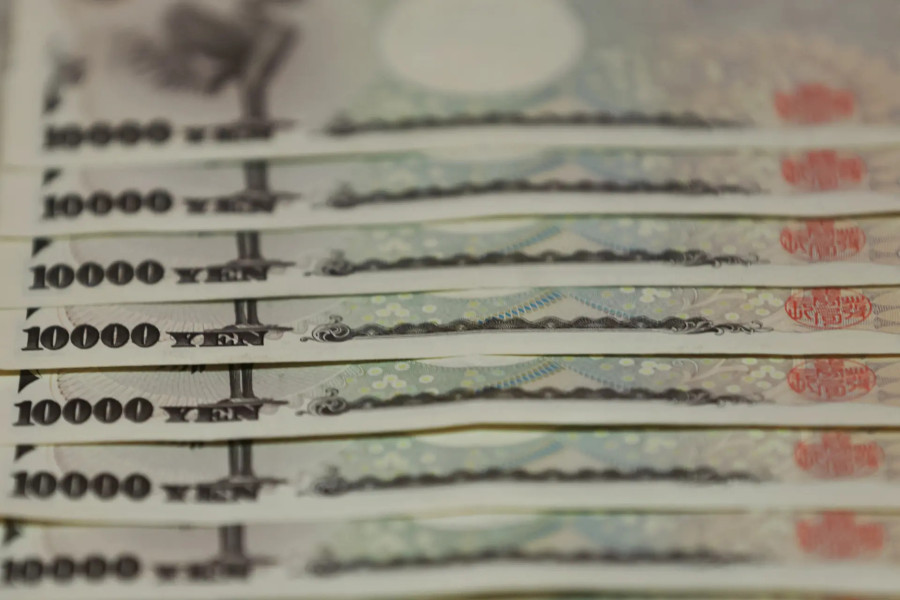The Japanese yen rose in the Asian market on Tuesday against a basket of global currencies, continuing its gains for the second day in a row against the US dollar, thanks to the slowdown in long-term US Treasury bond yields.
After the Japanese currency stuck to trading above the barrier of 150 yen per US dollar, which is the level that some market observers see as a pivotal line that would stimulate the intervention of the Japanese authorities in the exchange market.
Japanese yen exchange rate today
The dollar fell against the yen by 0.15% to (149.49 yen), from today's opening price of (149.70 yen), and recorded the highest level at (149.78 yen).
Yesterday, the yen rose 0.1% against the dollar, the second gain in the last three days, as part of a recovery from a two-week low of 149.99 yen.
Yield on US bonds
The yield on ten-year US Treasury bonds fell on Tuesday by more than 0.2%, continuing its losses for the third session in a row, moving away from the highest level in 16 years at 5.021%, which is putting negative pressure on the levels of the US dollar.
In addition to the correction and profit-taking operations, this development in the US bond market comes before the release of important data on the US economy later today, as the performance of the main industrial and service sectors during October was disclosed, which provides strong evidence about the health of the economy during the quarter. Fourth of this year.
The continued decline in US bond yields is in favor of an increase in the Japanese yen exchange rate against the US dollar, as the gap between long-term bond yields between Japan and the United States shrinks.
Barrier 150 yen
For a few minutes on October 3, the yen traded below the 150 yen barrier for the first time in a year. It then rose by 1.9% to 147.27 yen, which was the highest level in the last three weeks, before falling again below 149 yen.
This apparent fluctuation in the price of the Japanese yen sparked talk in the foreign exchange market about the Japanese authorities actually intervening to support the local currency against excessive weakness.
Even if there is intervention from Japanese authorities, it will not drag the dollar/yen pair down permanently unless bond yields start falling seriously as well, said Alvin Tan, head of currency strategy for the Asia region at RBC Capital Markets.







































